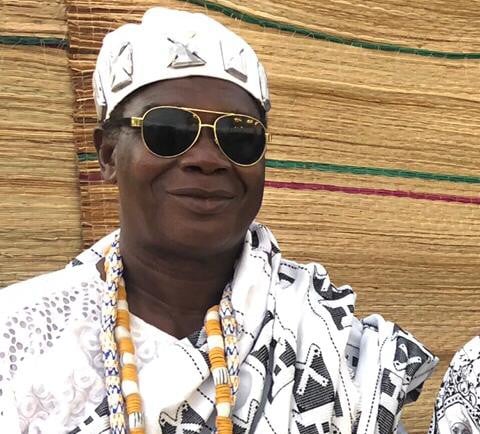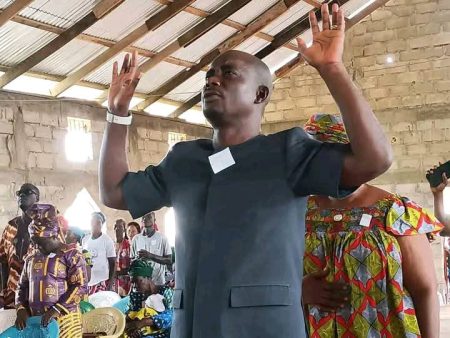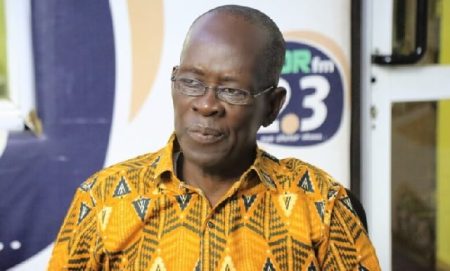Professor Torgbi Damadzi IV, a distinguished retired professor from York University, Canada, and a respected traditional ruler, has gifted the world with a significant contribution to the understanding of Anlo-Ewe chieftaincy. His book, “Origin & Development of Chieftaincy among the Anlo-Ewe,” launched on August 3, 2025, in Anloga-Dornorgbor, Ghana, delves into the intricacies of chieftaincy, culture, and traditions of the Anlo-Ewe people of the Volta Region. This work represents a blend of rigorous academic research and profound insights gleaned from oral traditions, creating a comprehensive and nuanced narrative of Anlo-Ewe leadership.
The book’s strength lies in its meticulous approach to historical analysis. Professor Damadzi IV draws upon a wealth of scholarly resources, including seminal works by Prof. D.E.K. Amenume, Mr. Charles M.K. Mamattah, and Sandra E. Greene, among others. This academic grounding provides a solid foundation for his exploration of the complex evolution of chieftaincy within the Anlo-Ewe community. Furthermore, the author’s deep connection to his Anlo heritage allows him to seamlessly integrate oral traditions, enriching the narrative with invaluable perspectives passed down through generations. This combination of academic rigor and cultural sensitivity distinguishes the book as a truly authoritative resource.
The narrative unfolds as a captivating journey through the historical tapestry of the Anlo-Ewe people, tracing the development of their chieftaincy system from its earliest origins. It meticulously examines the roles, responsibilities, and rituals associated with chieftaincy, providing a comprehensive understanding of the institution’s significance within the broader cultural context. The book delves into the intricate power dynamics, succession processes, and the symbolic meanings embedded within the regalia and ceremonies that accompany the investiture of chiefs. It also explores the evolving relationship between chieftaincy and the community, highlighting how this institution has adapted to changing social, political, and economic landscapes.
Beyond its historical focus, the book illuminates the profound cultural values and beliefs that underpin Anlo-Ewe chieftaincy. It explores the intricate connections between leadership, spirituality, and ancestral reverence, demonstrating how these elements intertwine to shape the social fabric of the community. The author skillfully unveils the symbolic significance of rituals, ceremonies, and oral traditions, providing readers with a deeper appreciation for the rich cultural heritage of the Anlo-Ewe people. This exploration of cultural nuances adds a layer of depth and meaning to the understanding of chieftaincy as not merely a political institution but as a vital expression of cultural identity.
Professor Damadzi IV’s expertise in Chieftaincy, Dance Ethnography, and West African Performance Arts, combined with his broad interest in cultural studies, interdisciplinary music, and dance, informs his insightful analysis. He masterfully weaves together diverse strands of knowledge to create a holistic portrait of Anlo-Ewe chieftaincy. His academic credentials, including an MFA and PhD from Simon Fraser University, Canada, underscore the scholarly rigor that permeates the book. This combination of academic excellence and cultural immersion makes him uniquely qualified to undertake such a significant study.
The book launch itself was a testament to the significance of the work. Chaired by Torgbiga Dutor Wenya III, the event attracted a distinguished gathering of chiefs, queens, dignitaries, and community members from Anlo and beyond. Their presence underscored the book’s importance not just as a scholarly achievement but also as a valuable contribution to the cultural heritage of the Anlo-Ewe people. “Origin & Development of Chieftaincy among the Anlo-Ewe” stands as an invaluable resource for scholars, students, and anyone seeking a deeper understanding of Anlo-Ewe history, culture, and traditions. It is a legacy for future generations, ensuring that the rich tapestry of Anlo-Ewe chieftaincy is preserved and celebrated.













